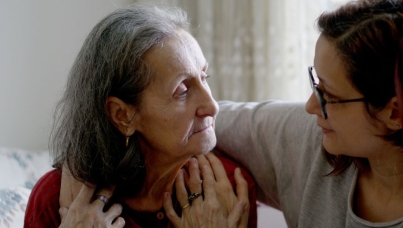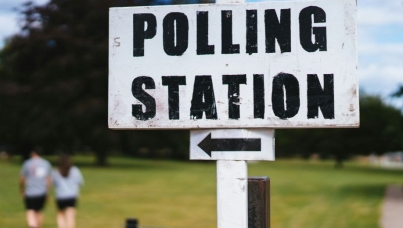Public consultations are vital but need to be seen in a proper context
Mark Diffley highlights the advantages and disadvantages of conducting public consultations.
 Download the article as a PDF
Often, governments choose to demonstrate their openness by holding a public consultation over a particularly important or controversial policy, illustrating their sincerity to voters by inviting anyone with a view to express it and have it considered. The two most recent high profile examples of consultations being used by the Scottish Government concern the forthcoming constitutional referendum and the issue of same-sex marriage which the government is proposing to legislate in favour of in the coming year.
These consultations are vital in demonstrating openness and transparency, allowing government to gauge the strength of feeling on all sides of a debate. However, the results of such exercises should be seen in a proper context and not over-claimed. To begin with, public consultations are, by nature, unrepresentative since those who respond are self-selecting and will over-represent individuals and campaign groups who hold strong views on the subject. They therefore should not be seen as being representative of public opinion. Unfortunately this does not stop those on either or both sides of an issue claiming victory from a consultation exercise in terms of the numbers that support their cause.
Take the recently published results of the consultation on same-sex marriage. Of the 77,000 responses submitted 67% opposed the proposed legislation. This is difficult to fathom given what we know about public attitudes to gay marriage from nationally representative surveys of the public, including our poll of June 2012 which showed that 64% actually support the right of gay people to get married.
So what do the results of this consultation show us, other than the ability of those who actively oppose the legislation to mobilise their supporters and assist them in delivering pre-prepared submissions of objection? Of course, the government is not bound by the quantitative outcome and, in this case, the Scottish Government has decided to press on with their proposals, safe in the knowledge that they have the backing of the other political parties in Holyrood and the majority of the general public. But it does allow that opponents of the legislation to cry foul, citing the results of the very consultation which the government instigated.
It also leaves the Scottish Government in a possible bind when it comes the publication of the results of its consultation on the independence referendum in October. If the results reveal a majority are critical of the Scottish Government’s position on a range of issues around this debate then their opponents will make political capital at their expense. If however the consultation results reveal broad support for their position, it will be difficult for the Scottish Government to make capital without risking accusations of inconsistency after the same-sex marriage consultation.
Consultations have an important place in the public discourse, allowing all views to be registered and perhaps highlighting issues which hadn’t previously been considered. But they must not be seen as a barometer of wider public attitude. If you are committed to evidence based policy in tune with the public then robust, representative research holds the key.
Check out Our Latest Thinking on current Scottish political and social issues here
Download the article as a PDF
Often, governments choose to demonstrate their openness by holding a public consultation over a particularly important or controversial policy, illustrating their sincerity to voters by inviting anyone with a view to express it and have it considered. The two most recent high profile examples of consultations being used by the Scottish Government concern the forthcoming constitutional referendum and the issue of same-sex marriage which the government is proposing to legislate in favour of in the coming year.
These consultations are vital in demonstrating openness and transparency, allowing government to gauge the strength of feeling on all sides of a debate. However, the results of such exercises should be seen in a proper context and not over-claimed. To begin with, public consultations are, by nature, unrepresentative since those who respond are self-selecting and will over-represent individuals and campaign groups who hold strong views on the subject. They therefore should not be seen as being representative of public opinion. Unfortunately this does not stop those on either or both sides of an issue claiming victory from a consultation exercise in terms of the numbers that support their cause.
Take the recently published results of the consultation on same-sex marriage. Of the 77,000 responses submitted 67% opposed the proposed legislation. This is difficult to fathom given what we know about public attitudes to gay marriage from nationally representative surveys of the public, including our poll of June 2012 which showed that 64% actually support the right of gay people to get married.
So what do the results of this consultation show us, other than the ability of those who actively oppose the legislation to mobilise their supporters and assist them in delivering pre-prepared submissions of objection? Of course, the government is not bound by the quantitative outcome and, in this case, the Scottish Government has decided to press on with their proposals, safe in the knowledge that they have the backing of the other political parties in Holyrood and the majority of the general public. But it does allow that opponents of the legislation to cry foul, citing the results of the very consultation which the government instigated.
It also leaves the Scottish Government in a possible bind when it comes the publication of the results of its consultation on the independence referendum in October. If the results reveal a majority are critical of the Scottish Government’s position on a range of issues around this debate then their opponents will make political capital at their expense. If however the consultation results reveal broad support for their position, it will be difficult for the Scottish Government to make capital without risking accusations of inconsistency after the same-sex marriage consultation.
Consultations have an important place in the public discourse, allowing all views to be registered and perhaps highlighting issues which hadn’t previously been considered. But they must not be seen as a barometer of wider public attitude. If you are committed to evidence based policy in tune with the public then robust, representative research holds the key.
Check out Our Latest Thinking on current Scottish political and social issues here



